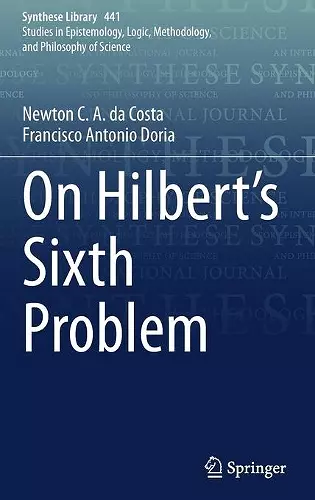On Hilbert's Sixth Problem
Francisco Antonio Doria author Newton C A da Costa author
Format:Hardback
Publisher:Springer Nature Switzerland AG
Published:26th Jan '22
Currently unavailable, and unfortunately no date known when it will be back
This hardback is available in another edition too:
- Paperback£89.99(9783030838393)

This book explores the premise that a physical theory is an interpretation of the analytico–canonical formalism. Throughout the text, the investigation stresses that classical mechanics in its Lagrangian formulation is the formal backbone of theoretical physics. The authors start from a presentation of the analytico–canonical formalism for classical mechanics, and its applications in electromagnetism, Schrödinger's quantum mechanics, and field theories such as general relativity and gauge field theories, up to the Higgs mechanism.
The analysis uses the main criterion used by physicists for a theory: to formulate a physical theory we write down a Lagrangian for it. A physical theory is a particular instance of the Lagrangian functional. So, there is already an unified physical theory. One only has to specify the corresponding Lagrangian (or Lagrangian density); the dynamical equations are the associated Euler–Lagrange equations. The theory of Suppes predicates as the main tool inthe axiomatization and examples from the usual theories in physics. For applications, a whole plethora of results from logic that lead to interesting, and sometimes unexpected, consequences.This volume looks at where our physics happen and which mathematical universe we require for the description of our concrete physical events. It also explores if we use the constructive universe or if we need set–theoretically generic spacetimes.“This book is a compilation, ‘an essay’, of the bulk of their work from 1990 to the present. This 191 page essay includes some historical background and lots of snippets and parts of da Costa and Doria’s work on the meta-mathematics of mathematical physics. It starts with a primer on graduate-level basic physics … ending with a consideration of hypercomputation.” (Deborah Konkowski, zbMATH 1494.00005, 2022)
ISBN: 9783030838362
Dimensions: unknown
Weight: unknown
191 pages
2022 ed.